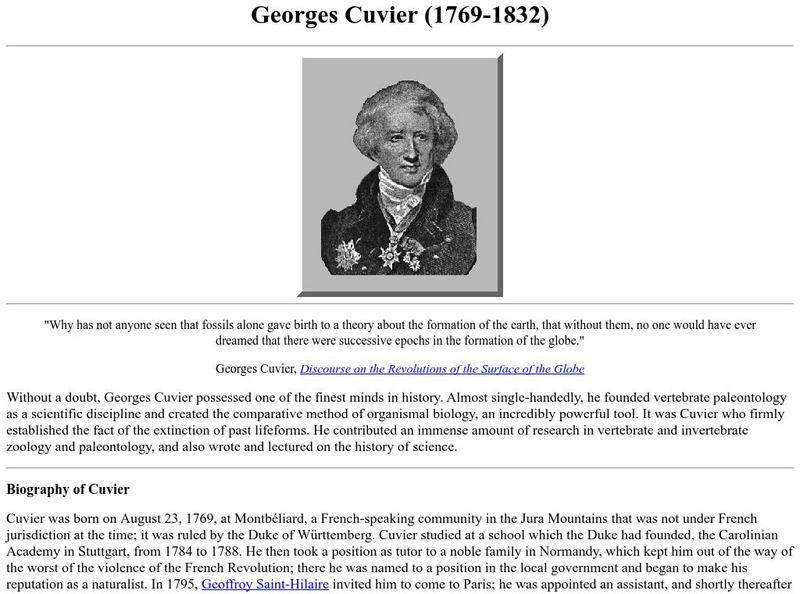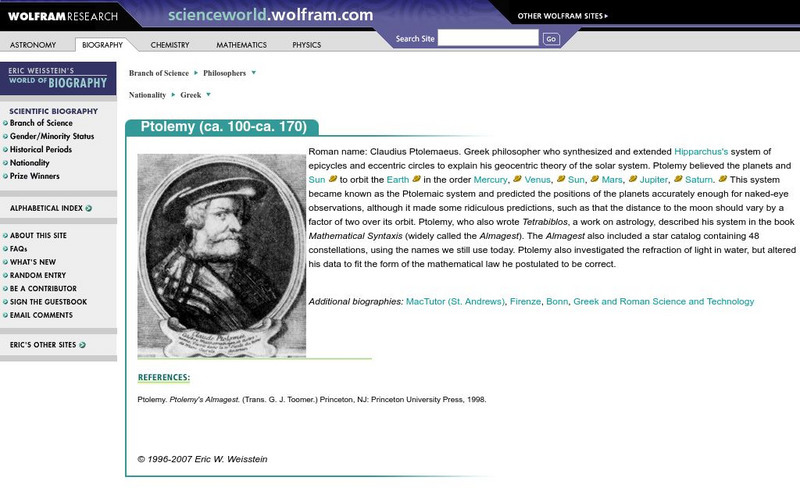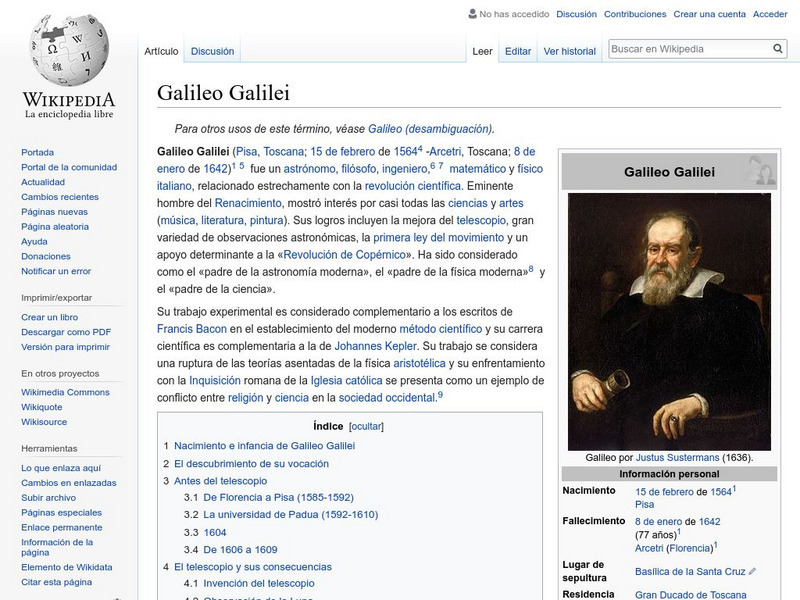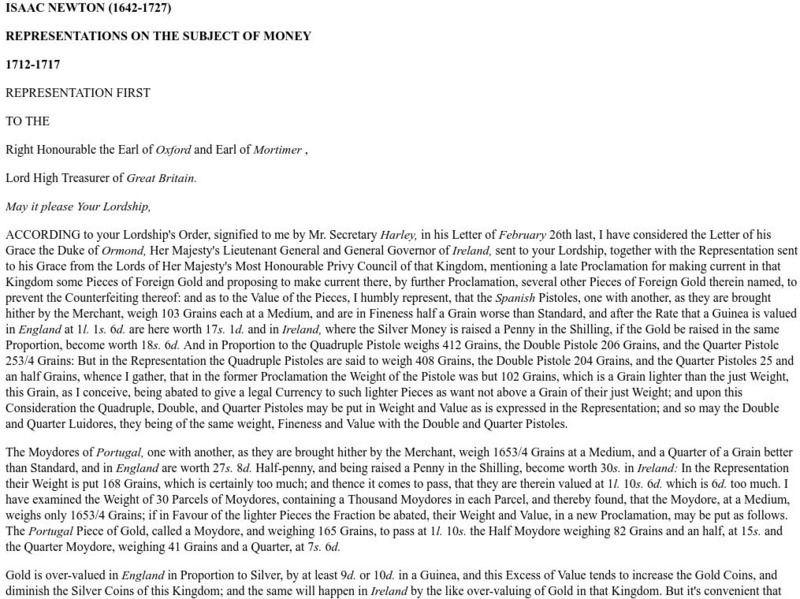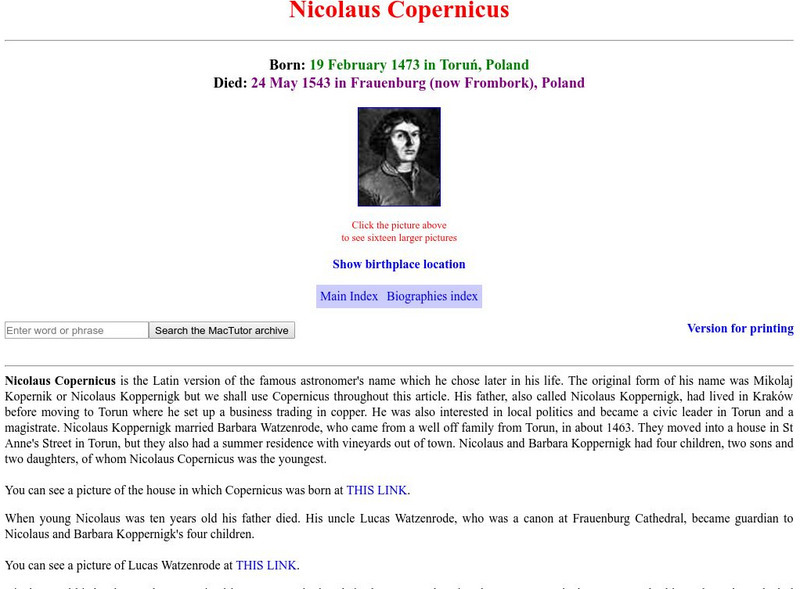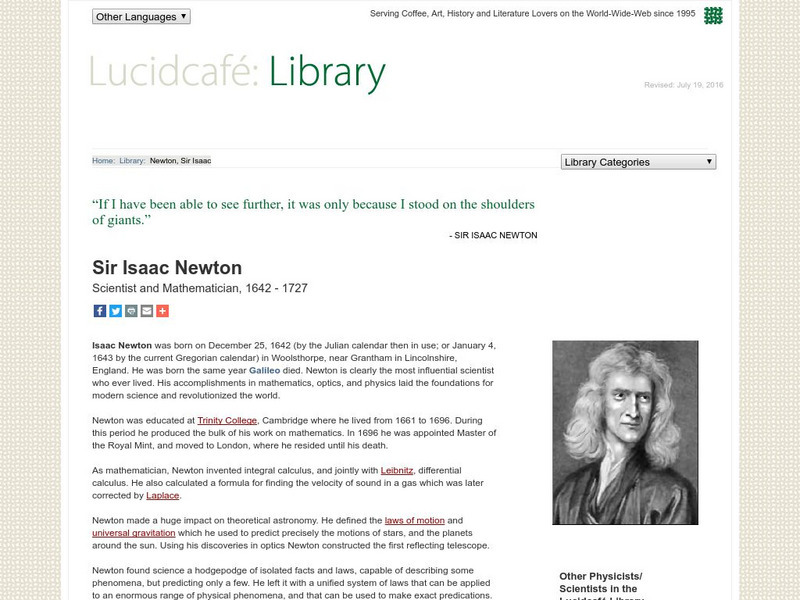Famous Scientists
Famous Scientists: Fibonacci Leonardo of Pisa
Find out about how Fibonacci invented the modern number system, and contributed to the scientific revolution.
Famous Scientists
Famous Scientists: Thomas Kuhn
Meet the author of one of the most influential books of the 20th century The Structure of Scientific Revolutions, and the philosopher who coined the term "paradigm shift."
Khan Academy
Khan Academy: Nicolaus Copernicus
Learn about the life of the man who set off a scientific revolution with his sun centered theory in this article that details the biography of Nicolaus Copernicus.
University of California
Ucmp: Georges Cuvier
This site from the University of California, Berkeley offers a biography of George Cuvier. Scientific ideas of George Cuvier are presented, such as those related to comparative anatomy, fossils, the idea of extinction, and others....
Other
Asa: "The Antiquity and the Unity of the Human Race"
This paper, published by American Scientific Affiliation (ASA), explores the possibility of Adam and Eve's existence while addressing both the scientific and biblical-theological perspective.
PBS
Wnet: Thirteen: Wake Up, America: New Modes of Transport in 19th Century America [Pdf]
A lesson plan from the producers of the 16-episode PBS series "Freedom: A History of US" that examines how new technology and scientific advances of the nineteenth century changed America. Includes ideas for directing students through a...
Internet History Sourcebooks Project
Fordham University: Modern History Sourcebook: Heart and Blood in Animals
This site from Fordham University has a brief background on William Harvey as well as some documents written by Harvey.
Wolfram Research
Wolfram Science World: Ptolemy (Ca. 100 Ca. 170)
A very brief description of Ptolemy's role in researching astronomy. Links to related information.
University of Virginia
University of Virginia: Lecture on Kepler
The University of Virginia provides a continuation of a lecture given on astronomer Johannes Kepler, this lecture covers his different works within the field of astronomy.
Virginia Tech
University of Virginia: Johannes Kepler
The University of Virginia provides notes from a lengthy lecture given on the life of Johannes Kepler. This site has GREAT information and is easy to understand.
Rice University
Galileo Project: Isaac Newton
This site from the Galileo Project of Rice University is a sort of encyclopedic entry that outlines important information about Newton's life and work. The information is presented in a list format and is worth checking out.
Wikimedia
Wikipedia: Robert Hooke
Wikipedia offers biographical information on Robert Hooke (1635-1703 CE), one of the greatest experimental scientists of the seventeenth century.
Trinity College Dublin
Trinity College: Sir Isaac Newton (1642 1727)
A valuable and lengthy biography from Trinity College by W.W. Rouse Ball is transcribed by D.R. Wilkins on this page. Mentioned are the important facets of his work in physics and astronomy.
Trinity College Dublin
Trinity College: Newton's Principia, Book Ii, Lemma Ii
A page from Trinity College that includes both Latin and English versions of Newton's Principia. Also includes a criticism of Newton's proof by Berkeley. Links regarding the historical publications are included.
Wikimedia
Wikipedia: Galileo Galilei
Spanish-language encyclopedia entry for Galileo Galilei. This site presents the reader with a comprehensive biography of the scientist, along with a chronicle of his life and works.
McMaster University
Mc Master Univ: Representations on the Subject of Money
This site from the McMaster University provides the full text article of Newton's work, "Representations on the Subject of Money." Newton wrote these letters while serving as head of minting operations.
Famous Scientists
Famous Scientists: Galileo Galilei
Read a short biography about astronomer Galileo, one of the most significant people in the history of science.
University of St. Andrews (UK)
University of St. Andrews: Nicolaus Copernicus
This site provides a biography of Nicolaus Copernicus. Content includes pictures, cross-references to relevant history topics, a list of honors awarded to Copernicus, and more.
Other
The Ptolemaic Model of the Planetary System
An easy-to-read description and history of Ptolemy's geocentric model of the universe. Geocentric means that Ptolemy believed the Earth was the center of the universe.
Other
Nine planets.org: Ptolemy
This site from the University of Arizona provides a background of Ptolemy's profound influence in the areas of astronomy, geography, and cartography. Includes good pictures and related links.
Robin Chew
Lucid Cafe: Sir Isaac Newton
The notable English scientist and mathematician Sir Isaac Newton lived from 1642-1727. This site is a brief biography.
University of Hamburg
University of Hamburg: Renaissance
A look at the Renaissance from the aspect of advances in the biological sciences, and in particular botany. Information is provided about famous botanists from that era and their accomplishments.
Curated OER
Educational Technology Clearinghouse: Clip Art Etc: Nicolaus Copernicus
Nicolaus Copernicus (February 19, 1473 - May 24, 1543) was the first astronomer to formulate a scientifically based heliocentric cosmology that displaced the Earth from the center of the universe. His epochal book, De revolutionibus...
Curated OER
Educational Technology Clearinghouse: Clip Art Etc: Lord Bacon
Francis Bacon, 1st Viscount St Alban KC QC (22 January 1561 - 9 April 1626) was an English philosopher, statesman, and author. He served both as Attorney General and Lord Chancellor of England. He is also known as a catalyst of the...




